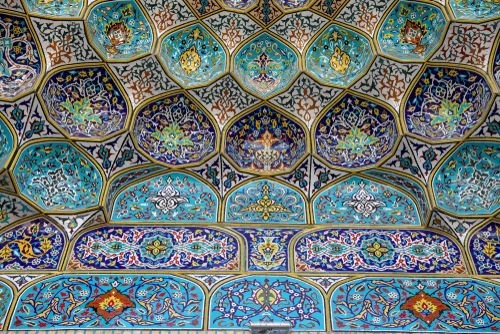The once flourishing Iranian community in Dubai faces pressure amid Persian Gulf tensions
Iranians in Dubai are considering moving back to Iran. The UAE government is cracking down on them in adherence to US sanctions policy. Perhaps this is surprising? Many of the families in Dubai are of Iranian descent, even if they do not want to admit it, and many have continued to trade with Iran. In 2014, when I was leaving, Iranians, with a lot of real estate including owning rented accommodation, were told to leave within 24 hours, and they were not allowed to sell property. What happened, I wonder?
This article in The Washington Post looks at what is happening to the Iranian community now.
By Adam Taylor
August 13
DUBAI — At the Iranian Club, steam tables overflow with kebabs, rice with barberries and pistachios, bread and stew. Hot tea is served with rock candy to sweeten it. Men wear dark business suits, while women cover their heads.
For decades, the club has catered to those in those in Dubai who wanted to get a taste of home across the Persian Gulf.
But with tensions in the region running high and U.S. sanctions making daily life more difficult for Iranians, Dubai's Iranian community is under pressure. Organizations that cater to them are struggling.
On a recent visit on a Saturday afternoon, the club's colossal dining room was barely a quarter full — not unusual right now, staff members acknowledged. "Dubai has grown, but our market is decreasing," said Sajad Seyed, a logistics manager at the club.
Dubai's government does not release the number of Iranians living in the city, but according to informal estimates, it's as many as 600,000. Many Iranians in Dubai say, however, there has been an exodus, with large numbers of their friends and family members already gone. Those who remain often say they, too, think about leaving unless the economic pressure eases.
Dubai has been a hub for trade with Iran since long before the separate emirates combined to become a sovereign state in 1971. The city grew to become a center of global commerce, attracting money from all over the world, and that further heightened its appeal to Iranians. Dubai was a city where cash, not creed, was king.
"They followed the model of Switzerland in World War II, when everyone who was fighting everyone had their money in Switzerland," said Amir, a 60-year-old Iranian businessman who first arrived in Dubai 15 years ago.
But now, Iranians in Dubai say that apolitical past is gone, and they see the change in their bank balances. Many now struggle to receive basic financial services from institutions that are responding to U.S. sanctions targeting the Iranian regime.
In the Iranian Club, this means a cash-only policy. "We don't have a machine," a receptionist explained, gesturing to an empty space on the counter where a credit card reader once sat. Staff members say it was abruptly taken away by Network, an Emirati payment company. Seyed recalled receiving a simple explanation: "We are not working with Iran anymore."
Since President Trump pulled the United States out of a 2015 nuclear agreement that Iran signed with world powers and reimposed sanctions last year, Iranian entities with links to the government have been hit once again with an array of punitive measures.
In Dubai, some Iranians complain that even though they have no link to the regime, they are being hit as banks and insurers overreact in trying to comply with the sanctions.
Meanwhile, a significant drop in the value of Iran's currency, the rial, over recent years has hurt anyone involved in trade with Iran. Those who were based overseas and paid in rials have had little choice but to return home.
These difficulties come on top of persistent concerns about the strength of Dubai's economy itself and the tenuous nature of long-term residency for foreigners in the United Arab Emirates.
"No one can stay here for long," Seyed said. "You have nothing to lean on."


Comments